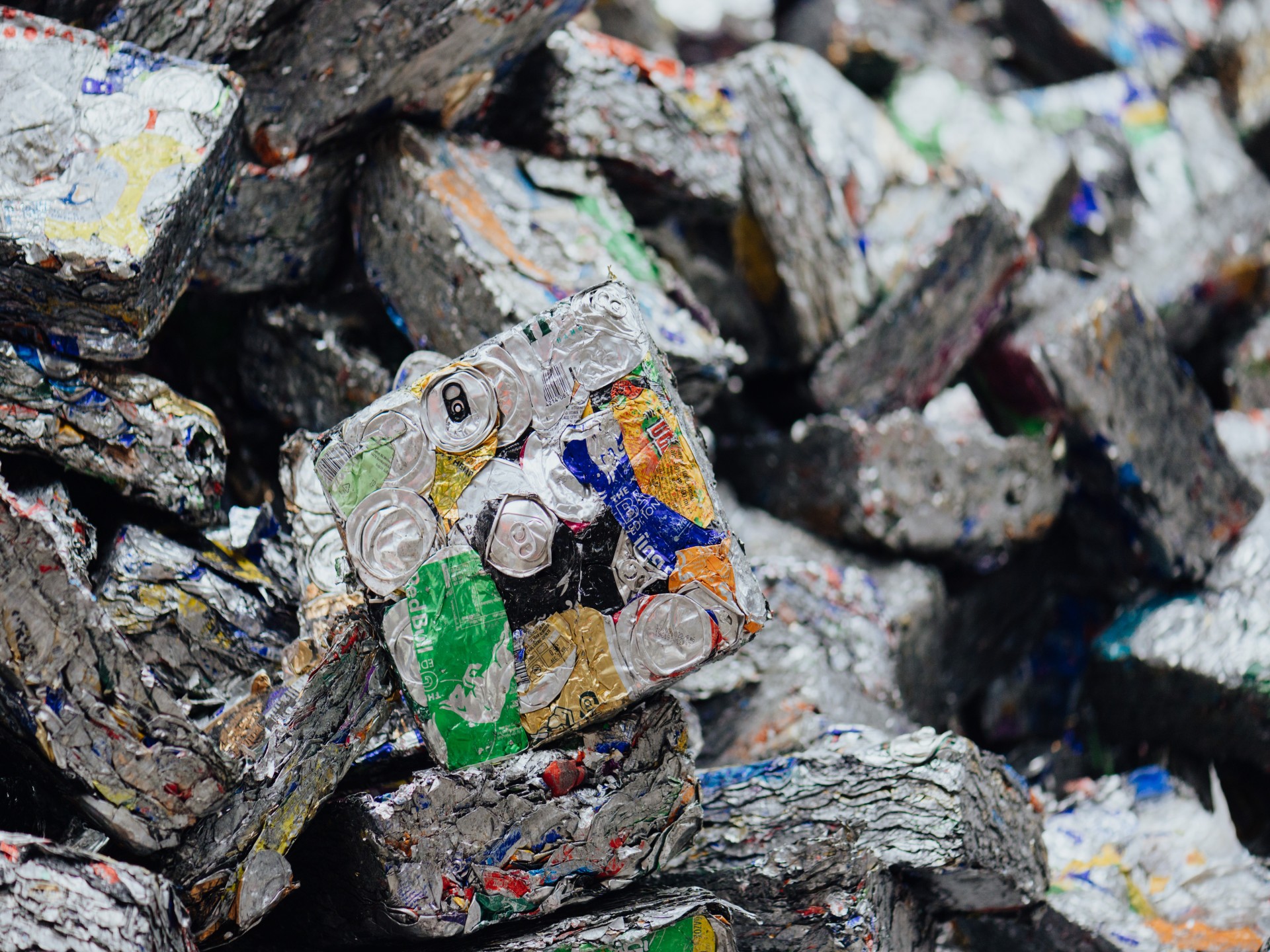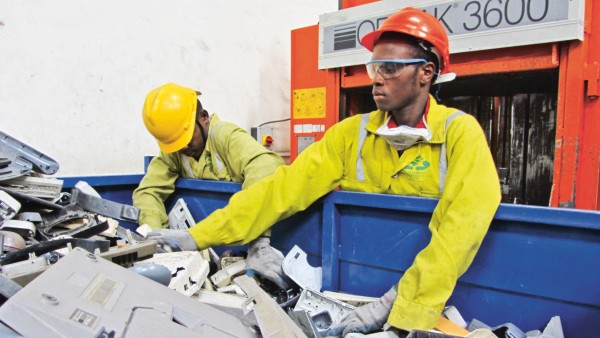The centre of Hamburg is home to the future of waste management. The digital platform of the start-up Resourcify helps companies generate real value from waste.
Resourcify is located just a few metres from the Alster and the main streets of Hamburg's city centre; Facebook Germany also has its offices in the building on the Domplatz. Resourcify’s premises are bright and spacious, with around 65 employees working for the young company. And yet many of the desks are empty.
“That is because we set up the office to be ‘remote first’. Most colleagues work from home,” explains Felix Heinricy. He founded Resourcify in 2015 together with Pascal Alich and Gary Lewis. “We only have this one planet,” says the 38-year-old.
“We consume natural resources and produce waste as if there were no tomorrow.” But this is now about to change. And one way change is going to come about is through the way companies handle their waste. Currently, waste is often incinerated. Companies gain nothing from this – apart from disposal costs. At Resourcify, waste is viewed as treasure with potential to be tapped. “I do not see waste as rubbish, but as recyclable materials,” says Heinricy with a spark in his eyes. Resourcify’s online platform offers a cost-efficient waste management solution.

Coffee capsules
According to calculations by the German environmental aid organisation Deutsche Umwelthilfe, Germans use over 3 billion coffee capsules per year alone - a waste mountain of 13,500 tonnes of aluminium, plastic and paper waste.
The software brings together waste producers, waste disposal companies and recycling businesses. The all-in-one platform enables customers and partners to coordinate and evaluate the entire disposal and recycling process. The information on waste, quantities and disposal is linked seamlessly and securely. Customers always have a transparent view of how much waste they produce and how they can sort it as well as possible. In turn, waste disposal companies optimise their offers and issue invoices. Recyclers then calculate the price at which these recyclable materials can be purchased. Resourcify uses the anonymised data to advise customers in similar industries on their waste management.
“We can make comparisons with other companies who produce waste of similar quantities and kinds,” says Felix. “That is the wonderful thing about data: it overwhelmingly speaks the truth.”
Companies such as Resourcify, which develop solutions in the area of the circular economy, are crucial for the transformation in Germany. However, start-ups need sufficient venture capital in order to successfully position their innovations on the market. This is where KfW Capital comes in.
“KfW Capital invests in VC funds such as Ananda Impact Ventures and HTGF, which in turn are invested in Resourcify, and contributes to strengthening the VC ecosystem,” explains Dr Jörg Goschin, Managing Director of KfW Capital.

“I do not see waste as rubbish, but as recyclable materials.”
Felix Heinricy, Co-Managing Director Resourcify
The focus of waste management is increasingly shifting towards the sustainable management of valuable resources. It is about the reuse and recycling of products, packaging and materials. This concept of the future is called zero waste. “Legislators everywhere in the world, whether it be in China, Europe or the USA, have concrete ideas about this. They want to promote the use of secondary raw materials and the circular economy,” says Felix. The EU has also established its own rules: from 2025, the Corporate Sustainability Reporting Directive will make it mandatory for companies, as waste producers, to provide information on their waste and recycling.
Whether it be fast food chain McDonald’s, DIY stores such as Hornbach, pharmaceutical corporations, hospitals or shipyards, the customers of the start-up Resourcify come from every kind of industry you can think of – and the amount of waste they produce is enormous.
As the complexity sometimes differs significantly from customer to customer, Resourcify divides these waste-creating companies into the areas of retail, manufacturing and construction. The retail sector primarily produces waste in the traditional waste groups such as cardboard, organic waste, plastics, metals and old appliances. In the industrial sector, the disposal of waste, some of which is hazardous, is becoming more complex.
In the construction industry, on the other hand, the volume of waste generated is greater and the solid waste produced is significantly heavier. In order to appropriately handle this wide range of waste categories, Resourcify works with over 400 waste disposal and recycling companies.
These recycling experts are often local companies, all of which are digitally connected to the platform and report back information via their own systems. This gives everyone involved access to relevant data in real time. The software even suggests optimisation options. Resourcify customers such as McDonald’s and Hornbach are able to compare the waste management of their stores.
“We want to help companies get closer to the zero-waste goal,” says Felix. “We believe that the only way in which companies can find out what they can optimise in the first place is through data transparency.” The fact that the entire process is digitised enables companies to become more efficient: “With our platform, data treasure troves are being translated into real value – and we are leveraging this value,” says Felix. The goal is a waste-free future.
“To this end, we want to continue to grow and internationalise strongly in order to become the number one disposal platform in Europe.” Now that sounds like a real vision of the future.
Published on KfW Stories: 6 November 2023.

_rs_stage_small.jpg)



Data protection principles
If you click on one of the following icons, your data will be sent to the corresponding social network.
Privacy information